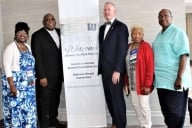You have /5 articles left.
Sign up for a free account or log in.
Friday, May 11, 2007
ACE, the American Council on Education, is a remarkable organization. Their mission, to speak for and about the entire range of higher education institutions, is admirable for its impossibility. Even so, ACE is almost always there when we need someone saying the right things about significant national issues related to higher education. Indeed, David Ward's reign, which is sadly nearing its end, has been a model of effective representation, and we are sorry to lose his charm, insight, and forthright courage in speaking on our behalf.
ACE does lots of things for different constituencies, but it always pays special attention to institutional presidents/chancellors because these people are the primary constituents of the organization. Presidents have many interests and concerns, but they are always interested in themselves. ACE responds in a variety of ways as it reflects the presidents' personal perspectives. A list of the titles for sale from ACE's publications on leadership and institutional effectiveness provides a sample: the flagship magazine, The Presidency; On Assuming a College or University Presidency: Lessons and Advice from the Field; and especially, The American College President.
This last item (most recently published in 2007 and on sale through ACE) appeared on my desk, and in looking through it, I marveled at our fascination with conversations about ourselves. Since 1986, ACE and its collaborators have been asking college presidents what they think about their jobs, seeking a profile of the work and performance, challenges and opportunities, as seen by the occupants of these high visibility positions. Much of the information is very interesting, especially related to the changes in presidential characteristics by race and gender, age, previous experience, and other descriptive characteristics of this carefully selected population.
In other sections of the report, the presidents portray themselves as hard working, over-stressed individuals, denied much privacy, and consumed by the struggle to make their institutions successful. However, there is also a sense in the commentary that accompanies these responses that perhaps something is wrong with a system of higher education that requires its presidents to seek money and deal with demanding external constituencies, cope with accountability and the changing requirements of the marketplace, and grapple with the difficulties of governance. As the report says "The mystery is why any individuals would subject themselves to such sacrifices and, because they obviously do, how they survive."
This is not something we should worry about. It is rare that an individual who becomes a college president imagines that the job is about pure thought, charming conversations with colleagues, and thoughtful discussions of the curriculum. Everybody, in or out of a presidency, knows that the success of colleges and universities depends on the acquisition of adequate funding. Everybody is clear that a president who avoids donors, does not like to speak with legislators, is uninterested in working with parents, and ignores corporations should probably not be president. The data in the ACE report highlight this consensus about the job of president, although the commentary appears to question the fairness of the requirements.
College presidents are actually not worth their price unless they are willing to deal with all those issues, as well as everything else that comes with the territory: faculty, unions, students, athletics, and communities, each with a long and impossible to resolve, conflict-related agenda. The list of presidential aggravations may be long in our own minds, but that is the job. It is the point of the exercise, to manage these complex interactions with the assistance of very smart people who will make the college or university more successful in competing for students, faculty, and staff, who will then deliver the performance that defines quality.
When the lure of academic life in its purer forms becomes great, presidents fade into the faculty or some other more graceful place, but while they are presidents, we should expect them to engage the battle and enjoy the fight. As one respondent to the survey accurately commented, "You do it because you love it."





